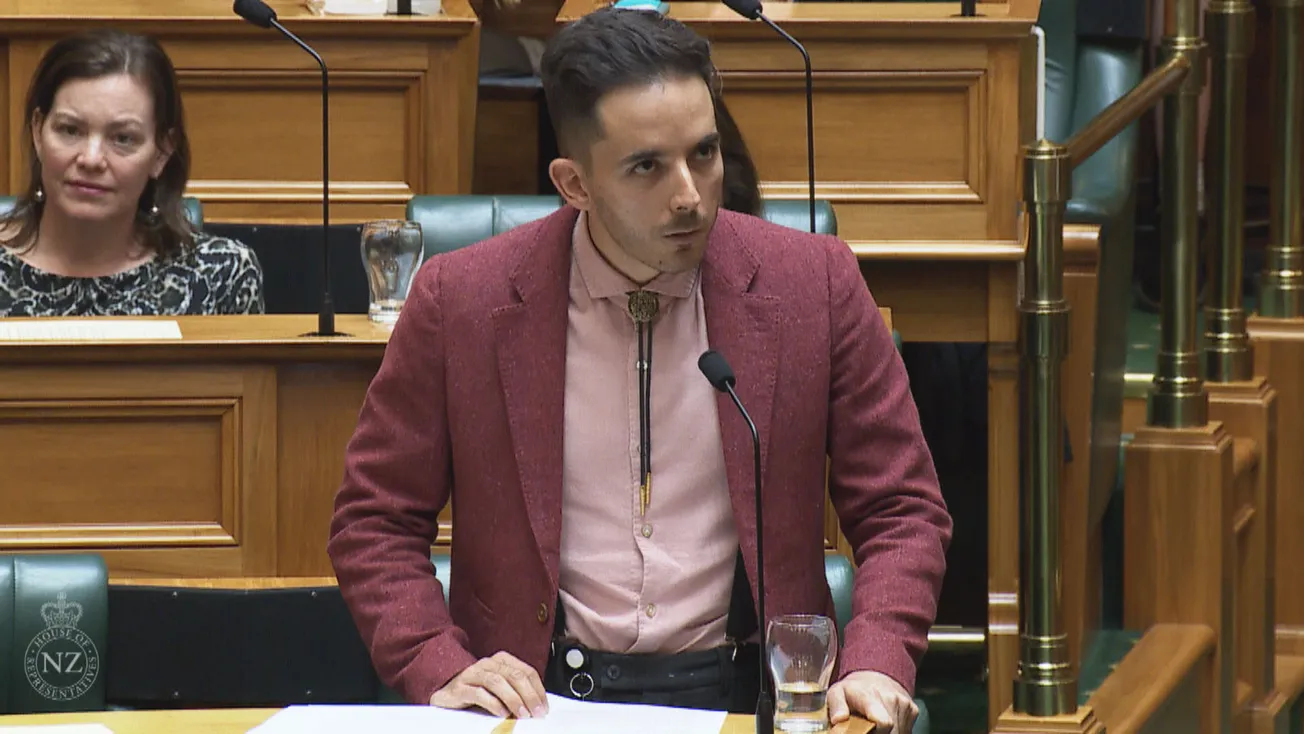Table of Contents
Information
Research by Sally
Remember when we heard that Green MP Golriz Ghahraman was allegedly a prosecutor of war criminals, and then it turned out that she was the opposite, actually working on the defence of a convicted war criminal and genocidaire?
It seems de rigueur for Green MPs to embellish their CVs in an attempt to boost their left wing credentials.
The one thing that really grinds my gears about the younger Green MPs is their tendency to spin their life stories to make them sound far more of an oppressed struggle or less affluent than they really are.
Golriz Ghahraman, of course, has been caught out more times than I can count, and the closest Chloe Swarbrick ever got to poverty in Papua New Guinea was the occasional glimpse through the compound fence of the help.
And then there’s Ricardo Menendez March. Last week we heard from this new MP as he defamed Bob Jones in parliament during his maiden speech. He described an interesting back story. I wondered if anyone in the media had bothered to check it out, or had they just accepted that it was true?
Ricardo Menéndez March is something of an enigma in that for a public figure it is quite difficult to find out details about his life other than him being a gay Mexican (as he likes to remind people constantly), his ostentatious poverty action work, his time as a professional student and the ten years he spent as a projectionist at a boutique independent cinema.
It is almost as if someone has gone to a lot of trouble to keep his past ambiguous. The closest thing to a detailed biography can be found in this interview here, Crave Café being a popular Auckland hangout for charitable hipsters and woke minor celebrities.
Specifically, the following:
‘The house I spent most of my years in Tijuana was less than 200m from the border—a couple of blocks away,’ Ricardo says. ‘You don’t really realise how weird it is to grow up in a city like that.
‘There was a park on the other side of the fence and families would meet for picnics with the fence dividing them. You could see through the fence and you could almost touch each others’ hands. That was closed down and now it’s pretty much impossible to meet.
‘What happens when you grow up in a city like Tijuana is that [the wall] is like a piece of furniture. This is how I managed to not be aware of what it meant at a political level. But it does shape who you are. It shapes your identity and your daily routine.’
Ricardo came to NZ as a student in 2006, but quickly discovered how expensive it is to live here as an international university undergrad. His father, a medical doctor, had invested almost all his savings to give Ricardo a chance—what Ricardo describes as a ‘traditional Mexican immigrant story of carving out a slightly more prosperous life and helping out your family back home.’
But Ricardo was forced to find work. He got jobs in hospitality for a few years, became a NZ resident, went back to uni to finish his studies, and then entered politics. Once he was there, he wished he had done it sooner.
Crave Cafe
In fairness to Ricardo, most of this is technically true. His family house was indeed less than 200m from the border… in the upmarket beach suburb of Playas de Tijuana in the western part of the city. Playas is sometimes called Playami, punning on Miami, because it’s popular with well-heeled San Diegans. The park is Border Field California State Park. So far, so aesthetic.
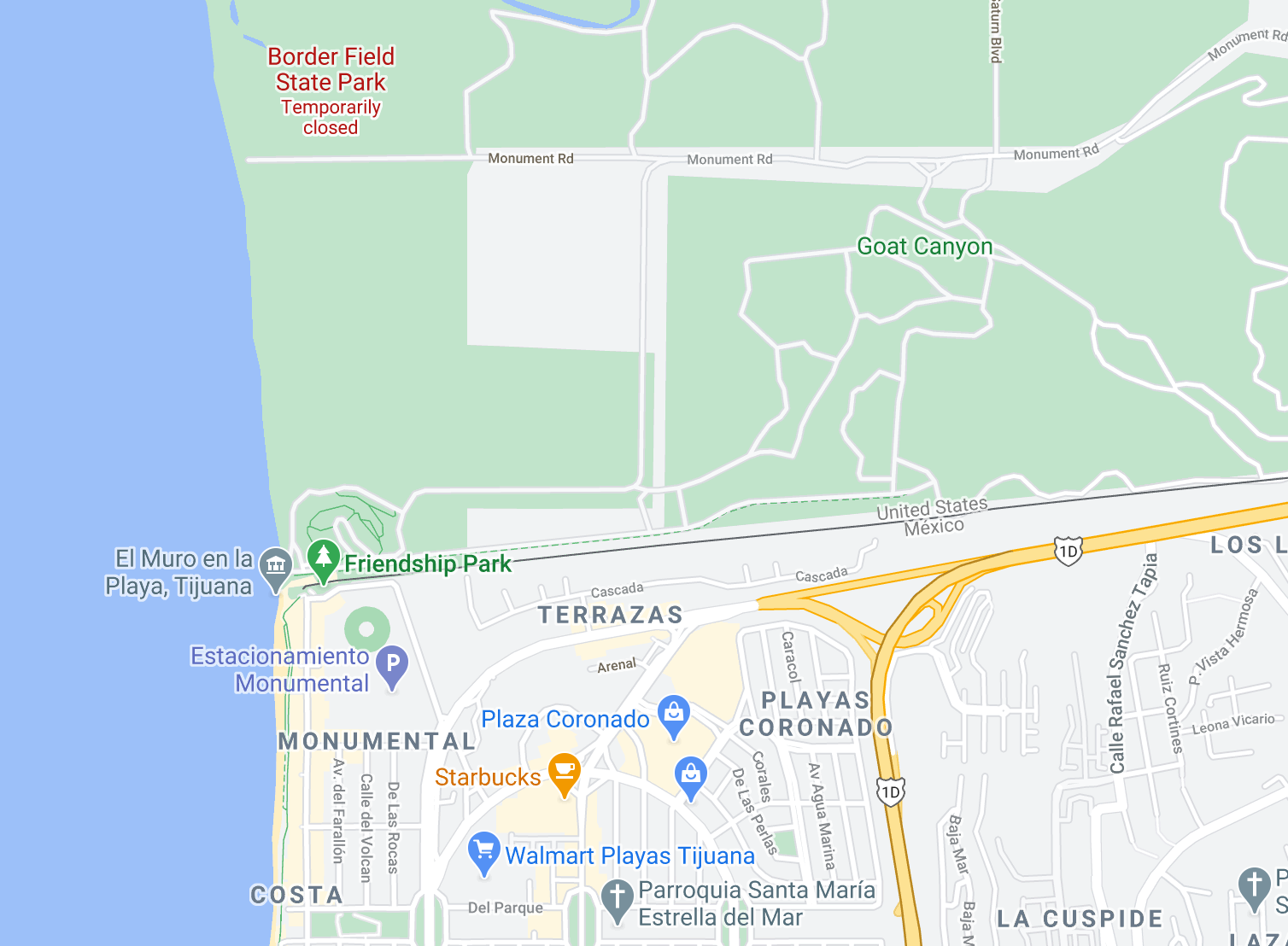
If you look less than 200m from the border you find that this suburb is the only one close to the park/border.
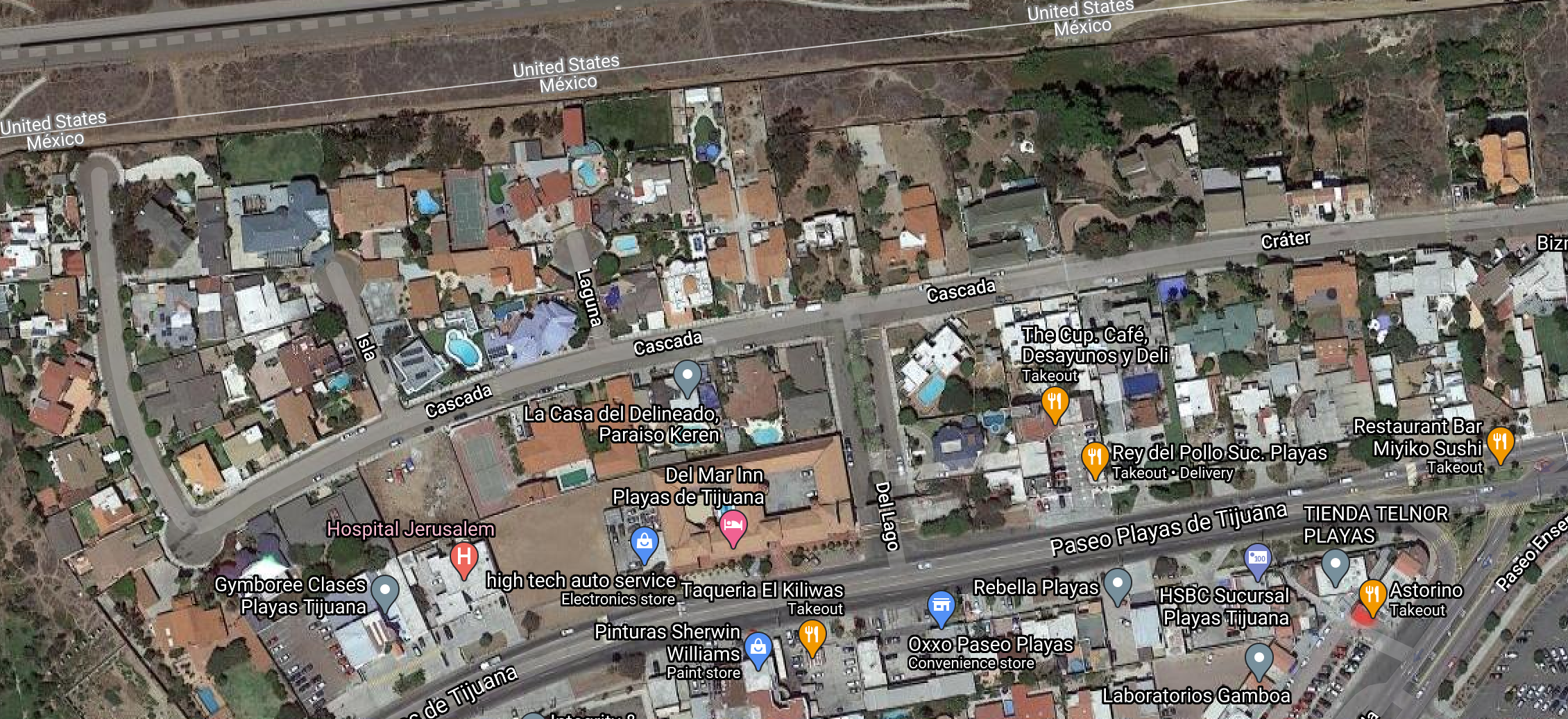
And if you look even closer you will see rather large houses complete with swimming pools.
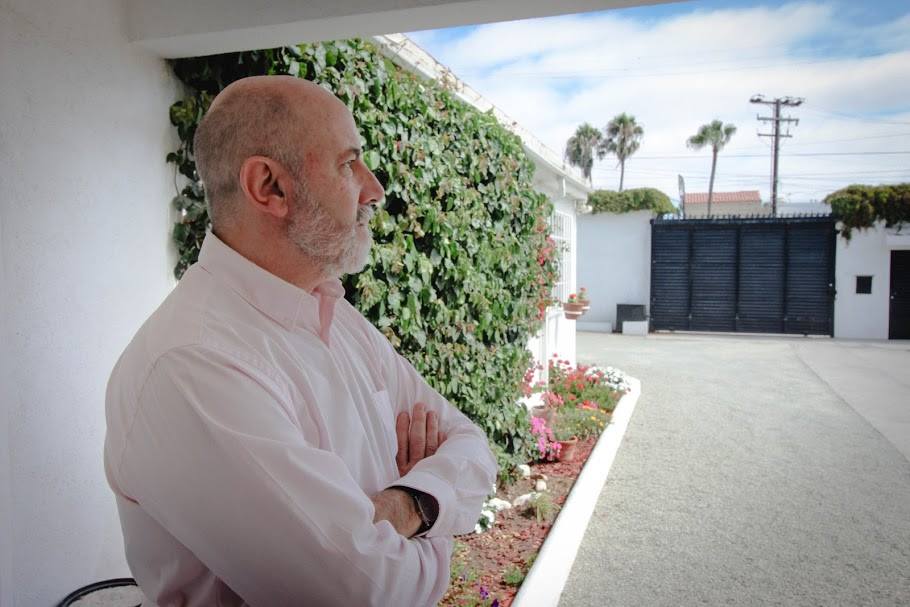
Ricardo’s father is indeed a doctor. Not, as might be inferred from his description, some charitable GP treating ringworm and scrofula in the barrio in exchange for the occasional plate of empanadas from some grateful abuela, but prominent Tijuana psychiatrist Dr Ricardo Menéndez Barquín.
From the photo above taken from the driveway, we can see a distinctive red roof, a power pole and three palms. A look on Google Maps easily identifies the same location:
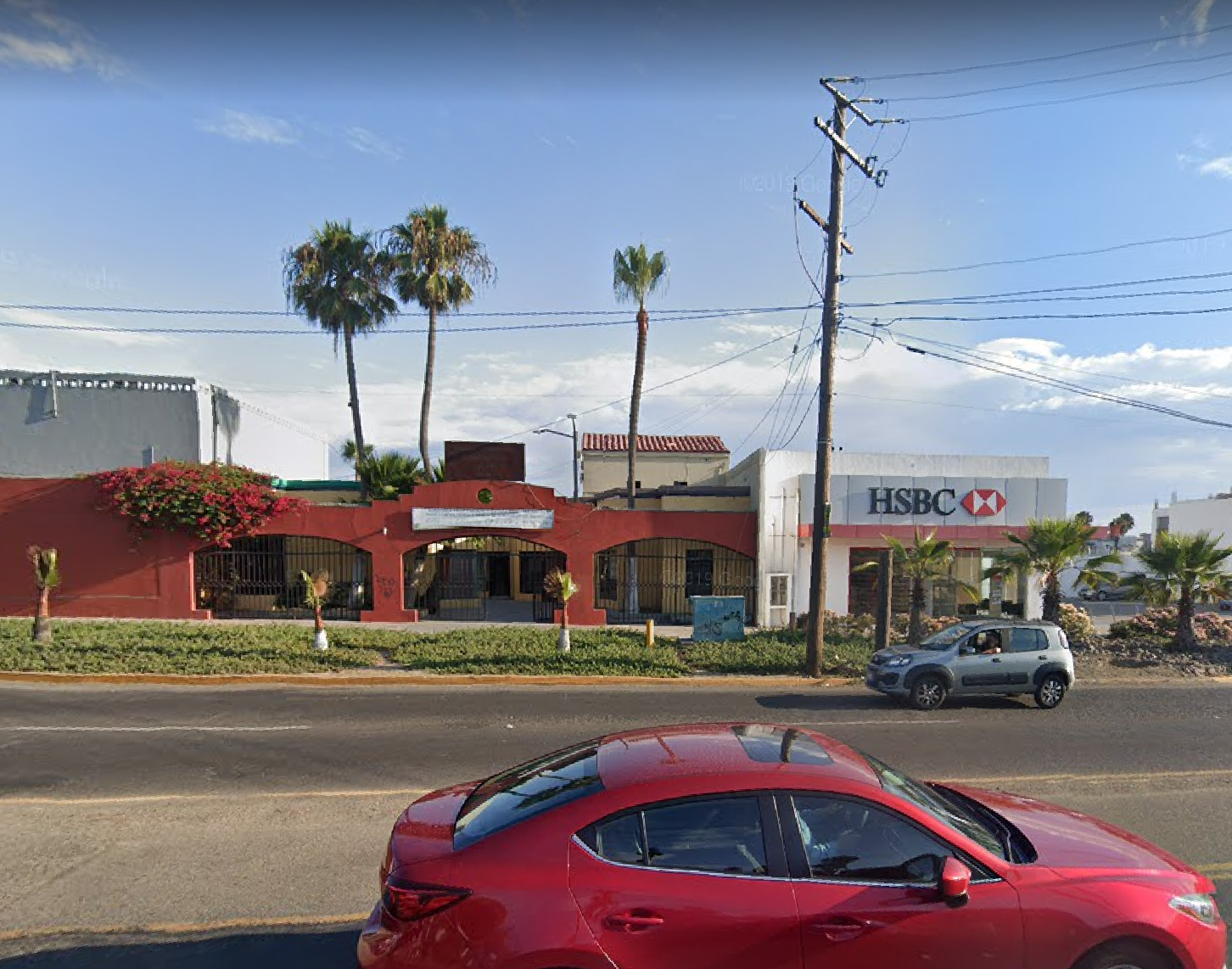
And the reverse of that shows the same gate as the driveway picture with the spiked top edge, the side entrance and the large wall surrounding the property.
Ricardo may not have had a swimming pool but several of his neighbours did.
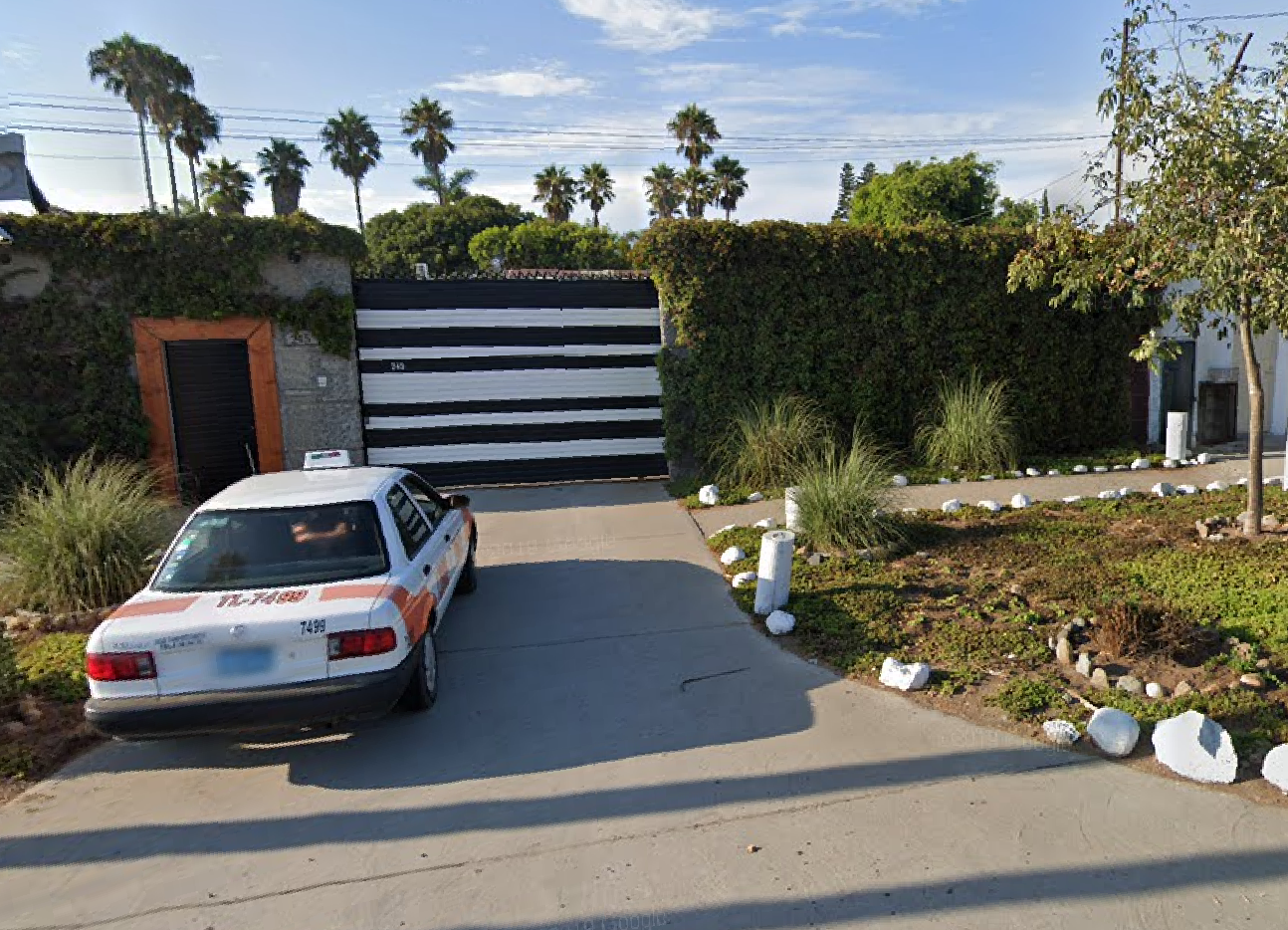
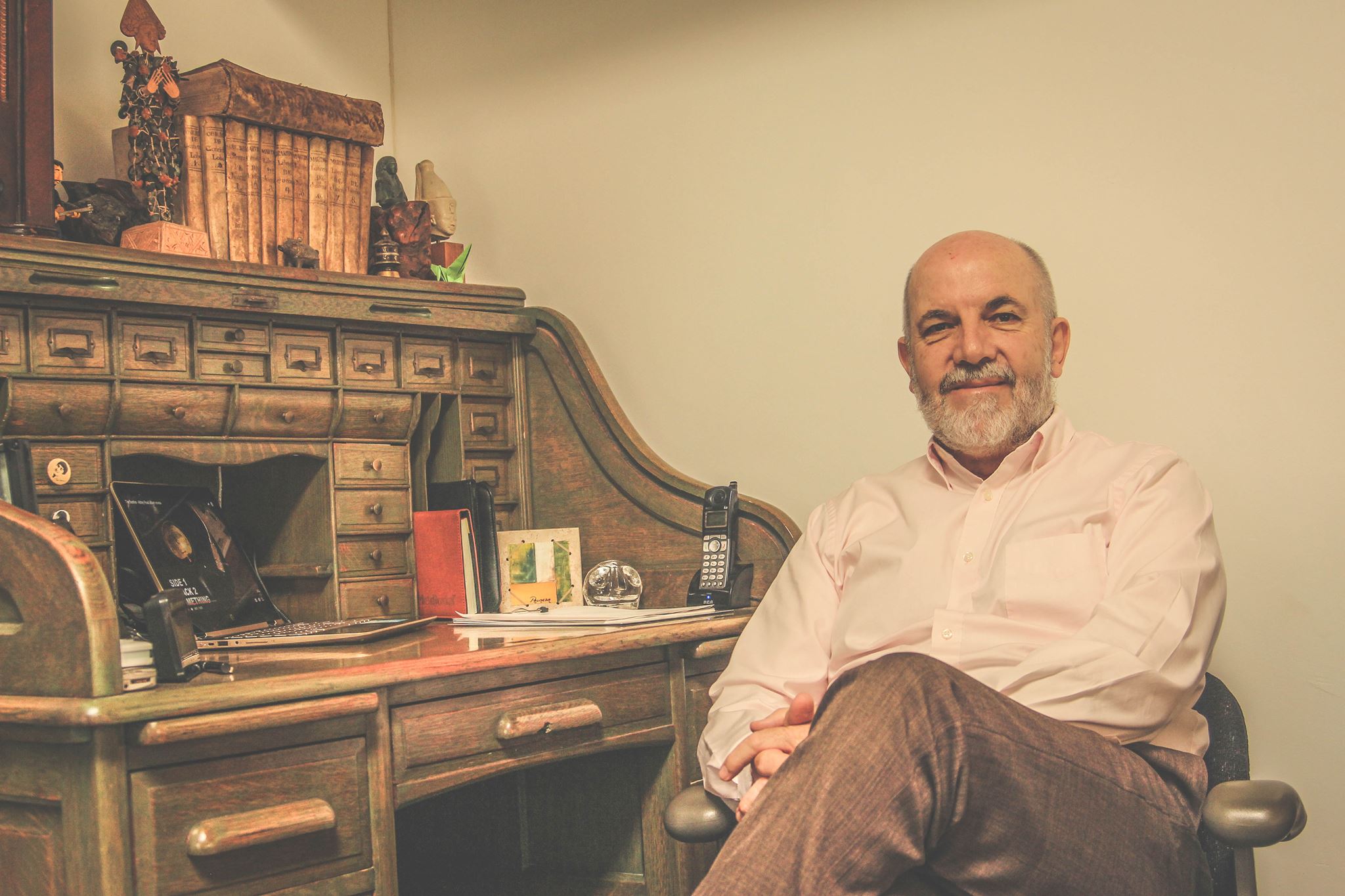
His father is rightly proud of his being elected. He even has his own Youtube channel.
But, let us not snigger too hard at the vision of young Ricardo scraping together his pennies from his activism and movie projecting to send remittance back to an apparently comfortably-off suburban mental health practitioner.
Now why would you consider any of that something to be ashamed of?
I mean, yes, it does make it slightly more difficult to berate middle class New Zealanders for their privilege when you are upper middle class yourself, but it would at least be honest.
A good look through Ricardo’s social media accounts suggests that this poor boy from the barrios is actually the opposite.
For someone who has professed he was hard up and living in poverty he still could afford to make trips back to Mexico. December 2017, Dec/Jan 2019 and July 2019.
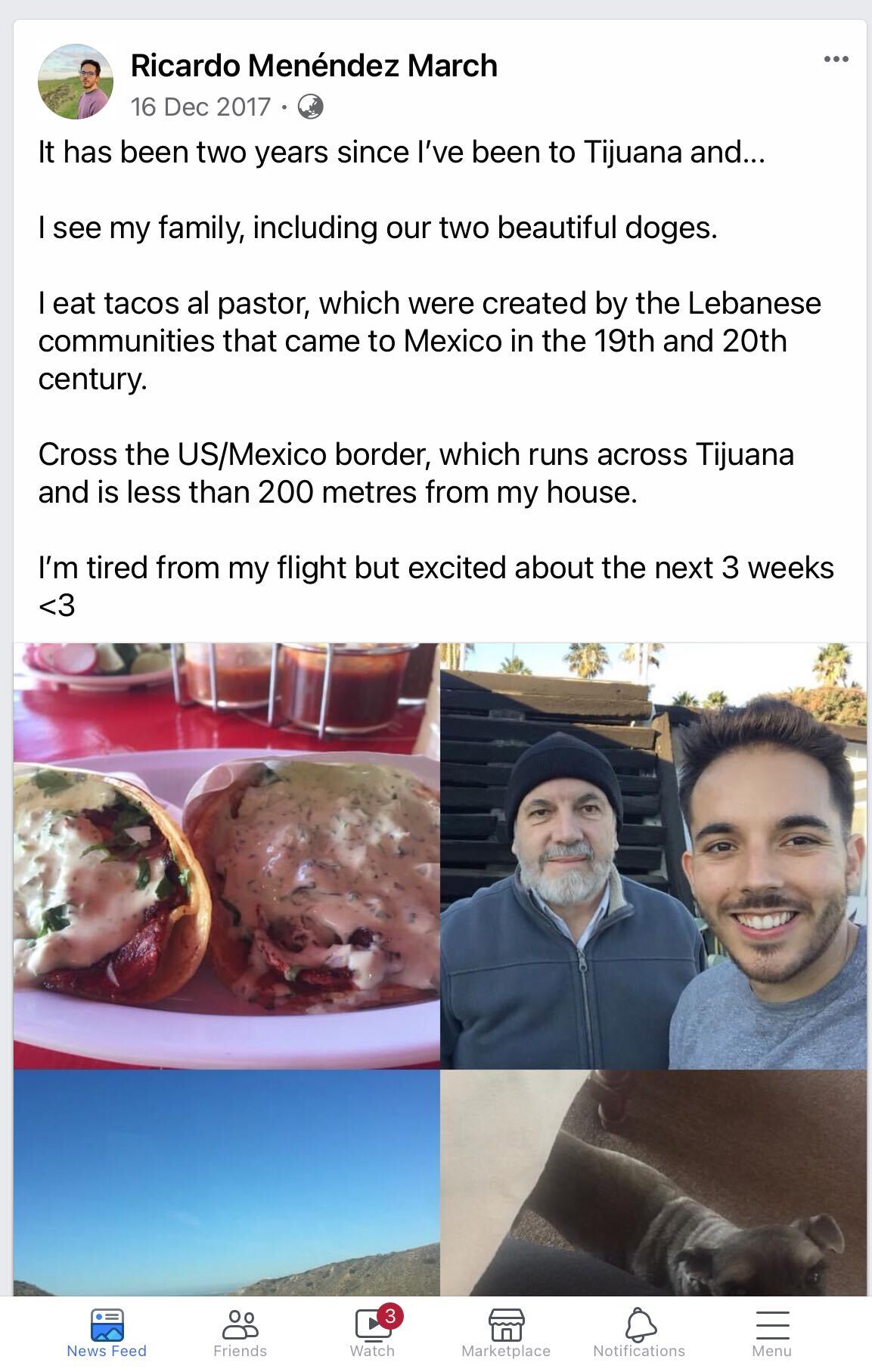
On a Facebook post in December 2017 he said it was the first time in two years that he’d made it back to Mexico. He went back in 2015 before he got his citizenship in 2017.
In 2019 he posted a bit more information:
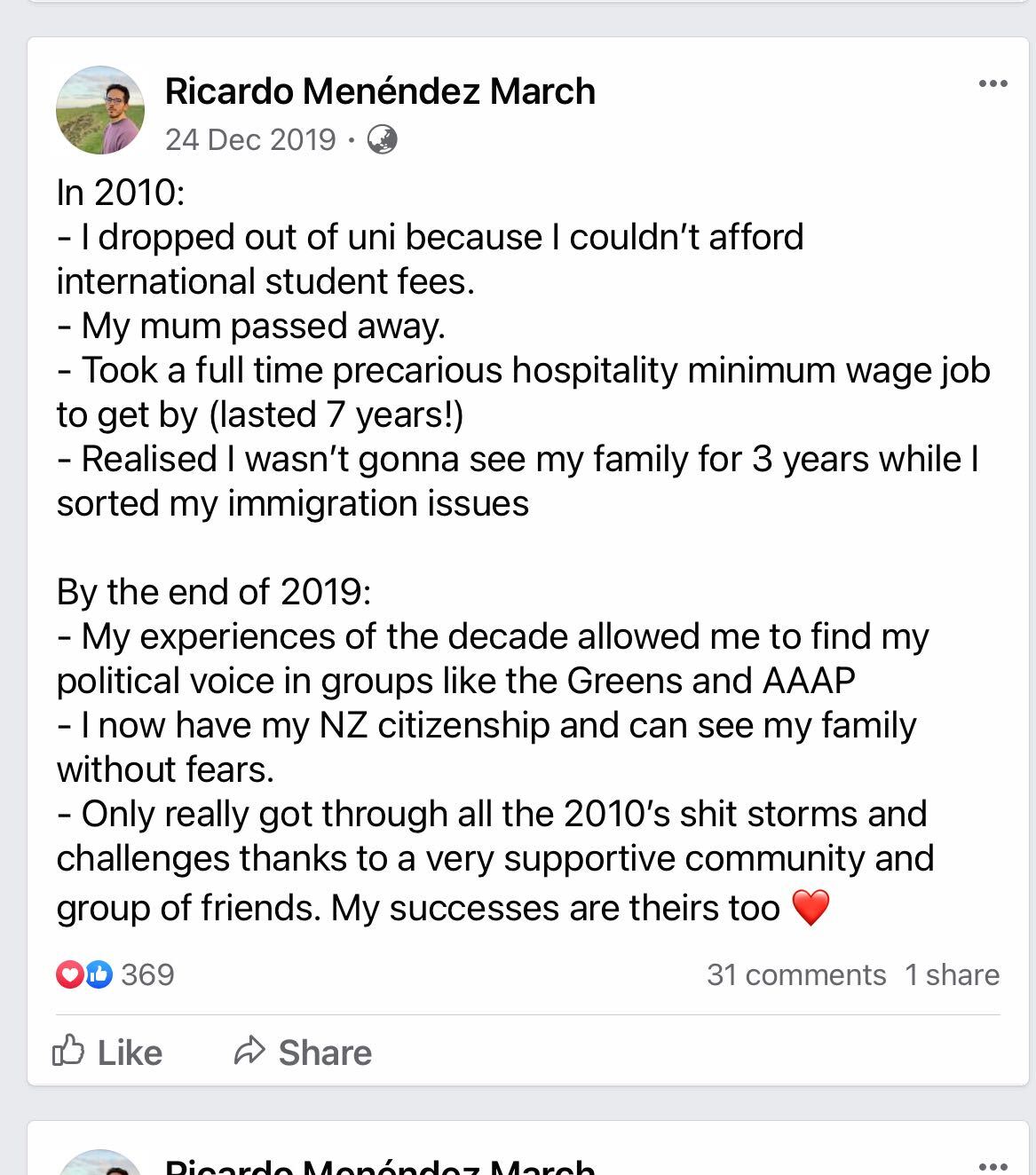
Which is very interesting because in 2016 he wrote that he had been back to Mexico for the four previous years.
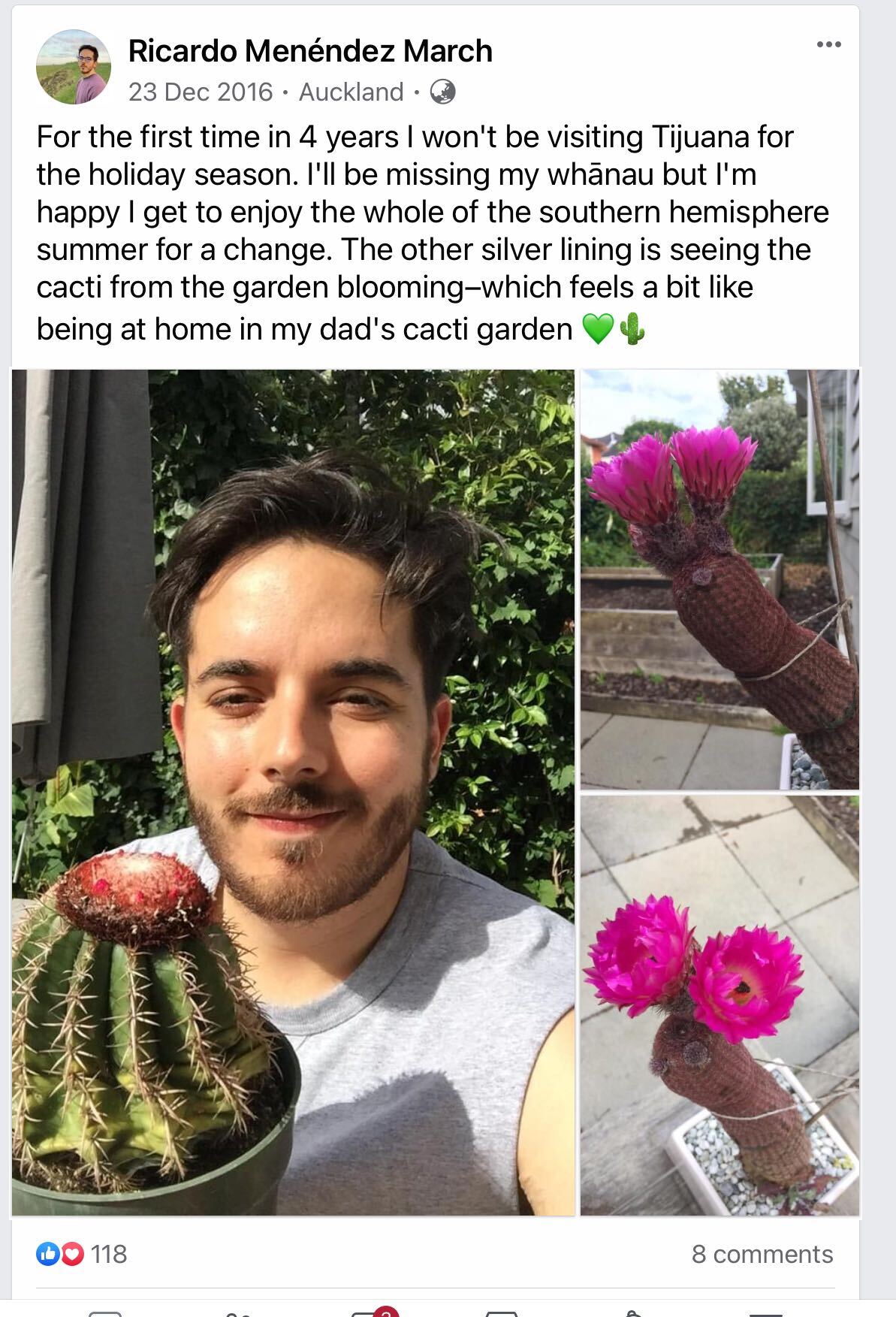
So, just to recap, the impoverished Ricardo Menendez March, working in a “precarious hospitality minimum wage job” managed to scrape enough pesos together to travel back to Mexico in 2012, 2013, 2014, 2015, then 2017, 2018 and 2019. That’s more overseas trips than most Kiwis have had in a lifetime, yet whilst in a “precarious hospitality minimum wage job”, he has managed at least seven overseas trips in the peak holiday season when fares are most expensive.
All this seems to reveal is a deeply cynical streak in young Ricardo that he is prepared to play to New Zealanders assumptions of Mexican poverty and squalor rather than just acknowledge his own privileged upbringing.
It’s ironic that he chooses Sir Bob Jones to be his anti-immigrant bogeyman when Sir Bob is vocally pro-immigration, and, unlike Ricardo, actually knows what it’s like to grow up poor.
So, it seems that far from an impoverished and precarious lifestyle he has in fact had a pretty good childhood, living in an affluent suburb, the son of a prominent psychiatrist.
All it took was a few short moments on Facebook and Google Maps to establish that Ricardo Menendez March is not all that he seems. Perhaps he might like to come clean, starting with an apology to Bob Jones and telling the truth about his upbringing.

